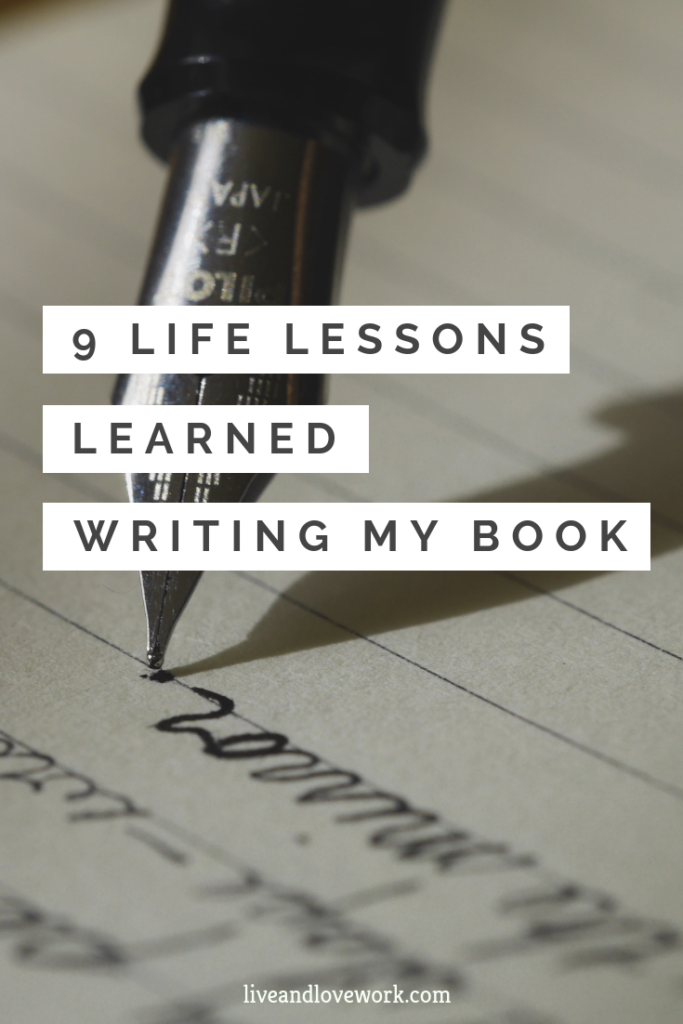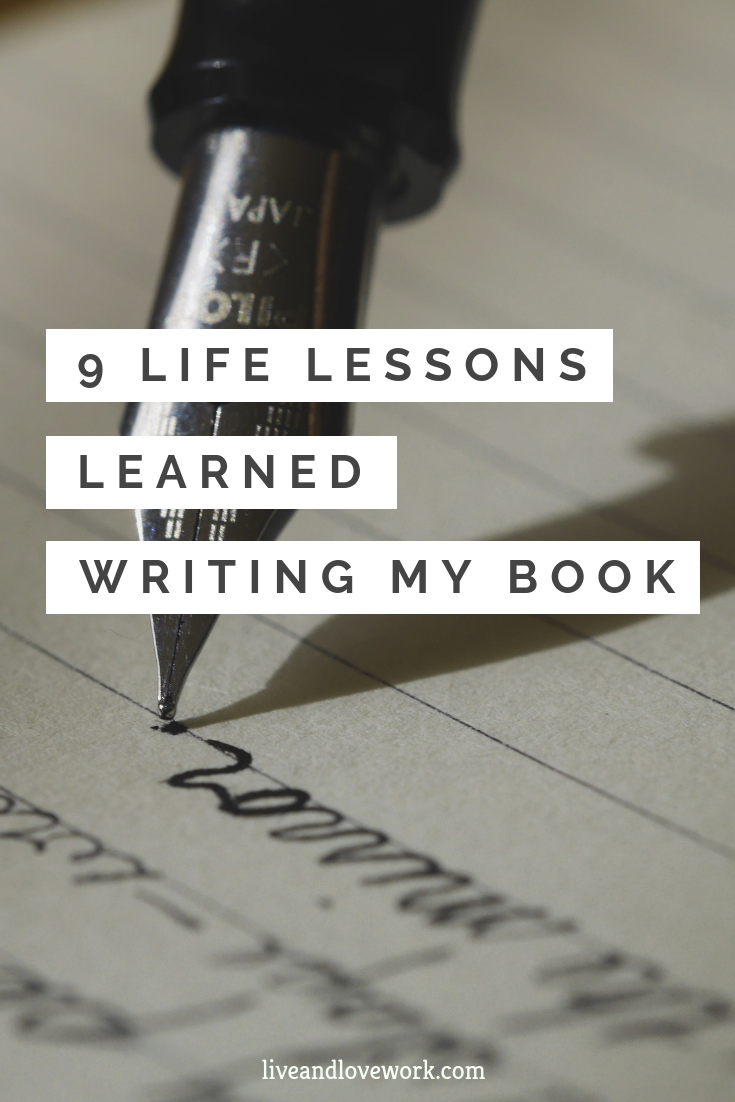I’m in the final stages of editing my book and there’s much work left to do. I’ve been working on my book since, well, the real beginning was 2 years ago. In that time there have been starts and stops, celebrations and setbacks, tears and recriminations. The journey is more important than the destination. The process of writing my book has changed me; I will never be the same. There have been many life lessons learned along the way, with many more to come as I complete and release my book.
The journey of becoming an author has been long and hard-won. I’ve spent hours upon hours writing and learning about the craft of writing, learning about publishing, thinking about my book, discussing the ideas and stories in my book, and, of course, procrastinating writing. Through this process I’ve become an author.
Let me honest here, as I’m writing this blog post in my writing group I’m not working on my book. Color me avoidant, but I learned years ago that sometimes procrastination is a good thing. And I know reflecting on what I’ve learned may help me get this book done already! (Or so I hope! Hey, let’s be real, you’re probably reading this blog post because you’re avoiding something else in your life, am I right? At least we’re in this together.)
Here are 9 life lessons learned from writing my book.

01. Know why it matters
I’ve had quite a few aspiring authors ask me for tips on writing their first book. My first tip for aspiring authors is the same counsel I give to my career coaching clients—know why what you do matters. Stop doing what you think you should do. Stop doing what everyone else is doing. Stop following a formula for success because it worked for someone else. What is your why? Why is it important? Why does it matter? It’s hard to follow through on a major life goal, and even harder to be successful at it, if you don’t know why it matters TO YOU.
Knowing my why has directed the subject and path to becoming an author. I’m writing my book because I have a message to share. I want others to learn from my experiences and create something better for themselves as I did for myself after growing up in poverty. I want people to know that there’s hope, a better life is possible, and give people some ideas how to make it happen for themselves. My why is sharing my message has informed choices for writing, publishing, and marketing my book. Because I know my why, I am aiming to meet the highest quality standards for the publishing industry as I self-publish my book. Meeting a higher standard will make it easier to get my book in libraries and local book stores, and self-publishing will help me get my book out in the world sooner than traditional publishing.
02. Isolation hinders momentum
It’s harder to do great work in isolation, even for introverts like me. When you’re alone it’s easy to get stuck and put your goal on the back burner. Spending time in the company of your peers is proven to improve productivity, motivation, and happiness. Peer mentoring programs, mastermind groups, and peer advisory boards are growing in popularity because they work.
When I started writing my book I joined a local writer’s organization, as well as 3 different writing groups. I attended writing conferences and retreats. Being in the company of my writing peers provided knowledge, encouragement, accountability, and support. Writing can be a solitary practice, and yet I don’t think I could have written this book in isolation. There are many times I almost got stuck, and my writing friends rallied around me helping me push through blocks and setbacks.
03. Have more fun
Writing is work. It requires dedication and effort. One lesson learned writing my book is to stop writing to have more fun in the midst of writing my book. Some people struggle to do the work and others, people like me, sometimes struggle to stop working, stop thinking, stop trying so hard. I have to let myself off the hook and go play!
Fun and play inspire creativity and motivation. When I really feel stuck it usually means I need to take time away from my book. I will use this precious time to laugh with friends, enjoy an impromptu solo dance party, re-watch episodes of Friends or The Office, or decorate my surroundings with googly eyes. (There’s no situation that can’t be made lighter with googly eyes!)
04. Research is another word for procrastination
I want my book to be great, and it’s easy to get stuck in research as a form of procrastination. There’s comfort in research because I don’t have to take action. I tell myself I need more information but the truth is I know enough to get started, and probably enough to finish, too.
My first attempt to write my book happened 2 years ago at a writing retreat. I left that first writing retreat without anything I wanted to include in my book. When I got home from the retreat I took a step back and started researching writing methods and processes. I interviewed authors and studied what it takes to be an author. After several months I was using my research as an excuse not to start writing. As it turns out what it takes to be an author is to write. It starts with getting the words out.
05. Every part of the process is progress
In the early stages of writing my book, I feared writers block – so much so that the fear almost kept me from attending a local writing retreat. I worried I’d get to the retreat and be unable to write anything good, particularly after my first writing retreat failed to yield any usable writing.
I realized that having writers block is a normal part of the writing process, and every part of the process is progress. I haven’t met a single author who didn’t experience writers block, procrastination, and all manner of setbacks. And every one of those setbacks is a step in completing my book. Instead of judging myself for each stumbling block, I can recognize that I’m going through a process of becoming an author, delays and all!
06. Everyone is an impostor
After that first failed writing retreat I started a writing group at my coworking space. The group was attended by writers of various experience and skill levels. Several members were professional writers and published authors. I was surprised to hear that no one in the group actually considered themselves to be authors. Even the published authors felt uncomfortable claiming the title of author.
Impostor Syndrome is defined as the fear of being found out as a fraud. Stemming from the inability to integrate accomplishments and give yourself credit for the awesome stuff you’re doing in the world, it’s believed up to 70% of the population has experienced Impostor Syndrome at some point. Feeling like an impostor makes me normal.
07. Done is better than perfect
My struggle with perfectionism is showing up in the final editing of my book. Of course I want my book to be good, and I know it won’t help anyone if it doesn’t get done. A few months ago I received beta reader feedback and had to decide which suggestions to use in my revisions. I realized I couldn’t complete the book this year if I took every suggestion as that would require massive re-writes. Instead I read through the feedback and revised my manuscript based on the suggestions that were easiest to implement and ideas that were most relevant to my big “why”.
Is it time to complete a project you’ve been working on? Is it good enough to call it done? Stop trying to get it right and get it done.
08. You’ll never really believe you can do it until it’s done
I get asked when I’ll finish my book at least once a week, sometimes more. There are days I hate this question and it feels like the book will never be done. There are days I question if I can really do this. It’s a good thing feelings aren’t facts, because feeling like the book will never get done doesn’t mean it won’t get done, and feeling self-doubt doesn’t mean I can’t do this. I am doing this, even if a lot slower and messier than I wanted.
Confidence in your ability doesn’t come from knowing you can do it so much as actually doing it. Some days it might feel like you can’t do it—whatever project you’re working on. Keep working at it until it’s done. You may even be closer than you think.
09. Sometimes you still won’t believe you did it
The temptation to discount or discredit my accomplishments is strong. See above re: Impostor Syndrome. Also, see above re: being in a room of published authors who couldn’t call themselves authors. While my book isn’t yet published I’ve accomplished enough big goals to know how easy it can be to disregard my wins. Last year I spoke about Impostor Syndrome at an event I facilitated and the very next day I found it challenging to give myself credit for hosting a great event. Though I received excellent feedback from event participants, I convinced myself they were just being nice. I told myself the participants who said they loved the event must be used to a lower quality of event to think my event was great. Basically, I had Impostor Syndrome about an event where I talked about Impostor Syndrome. Is that irony?
During and after achieving a major goal, notice when you start to minimize or disregard your accomplishment. Know that it’s common to shy away from giving yourself credit. Practice giving and receiving credit, even when it feels uncomfortable or braggy.
Writing my first book has changed my life for the better. I’ve learned a lot about myself in the process. Interacting with these life lessons has prepared me to be an author. Like many opportunities to uplevel in life, it’s not just about doing the work, it’s also about becoming who you’re meant to be. And that’s a lesson I’ll keep in my heart and mind as I begin writing my next book.

